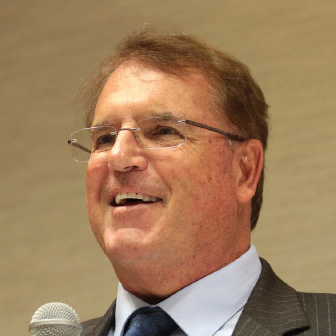Florida, along with six other states (Maryland, Missississpi, West Virginia, Massachusetts, Louisiana, Minnesota), is suing tobacco companies to compensate the states for the costs of treating "smoking-related illnesses." Typically, the states hire contingency-fee lawyers to pursue the cases. Maryland, for example, recently appointed Baltimore Orioles owner and megamillionaire asbestos litigator Peter Anglos to pursue the case for a 30 percent contingency fee.
But given the vast resources and legal talent at these law firms, one wonders why they need millions of dollars in corporate welfare in the form of legal research funded by the U.S. Department of Health and Human Services’ National Cancer Institute. How ironic that while Congress struggles to contain tort costs, the government subsidizes the very source of the problem with taxpayers’ dollars.
According to HHS grant # CA-94-15, obtained through a Freedom of Information Act request, Northeastern University Law School in Boston received $1,119,678 in 1995 for a four-year legal research project that will "produce policy papers" on "states’ ability to sue tobacco companies for the medical expenditures caused by tobacco-related diseases" and paid from Medicaid. The grantees will research "the optimal design and constitutional validity of state legislation that would strengthen legal procedures for obtaining such reimbursement of health care costs from the tobacco industry," thereby making it even easier for contingency-fee lawyers like Mr. Angelos to sue in the future.
Additional government funding for the project is provided by the Massachusetts Department of Public Health ($324,500 annually) and the Americans With Disabilities Act ($248,804), making the total taxpayer financing for the "Legal Interventions to Reduce Tobacco Use" project $1,692,982.
Professor Richard A. Daynard will be paid $33,626 annually from the grant to direct the project, working with his faculty colleagues Peter Enrich, Edward Correia, and Daniel Givelbaer, and anti-smoking activists Graham Kelder, Mark Gottlieb, and Edward L. Sweda of the "Tobacco Control Research Center" (of which Danyard is president).
The "Project" will do legal research for the states, the plaintiffs bar, and Blue Cross/Blue Shield, which has joined the Minnesota attorney general in the state’s lawsuit. The overall objective of the Project is to devise legal strategies that will help insurance companies and state governments get the tobacco companies to pay a large part of their health care bills; to pay class-action damages to smokers who have incurred costs of quitting, such as using the "nicotine patch"; and to provide legal strategies for "potential class action plaintiffs." If the lawsuits are successful, the hoped-for result is to impose billions of dollars of costs on the tobacco companies, forcing them to dramatically increase their prices (which will further curtail cigarette consumption), or go out of business altogether.
One of the main legal arguments to be developed is that "the tobacco companies could have foreseen that their products and behavior would cause states to expend large sums of money on uncompensated medical care." If this argument is accepted by the courts, however, there will be another explosion of liability costs to American businesses and consumers, for the same argument could apply to virtually every product. Fast food restaurants "could have foreseen" that their products could lead to health problems, as could the beef, liquor, ice cream, snack food, and myriad other industries. The argument is a plaintiff lawyer’s dream, but a potential nightmare for American businesses and consumers.
The idea that smokers have been conned into taking excessive risks is contradicted by solid research. In his book Smoking: Making the Risky Decision (Oxford University Press, 1992), Duke University economist Kip Viscusi estimated that the average American overestimates the risk of smoking by about 400 percent. Despite the well-known health risks of smoking, millions continue to take the risk.
The Northeastern University researchers will also act as legal and political advisers to state and local politicians who wish to enact legislation to ban or restrict the advertising and sale of tobacco products. Ironically, all of this highly-politicized legal research is itself of questionable legality in light of its taxpayer funding: It is illegal to use tax funds for partisan politics. Because Northeastern University is a government-funded state institution, its faculty are public employees who are legally prohibited from participating in political lobbying campaigns "in any activity which is financed in whole or in part [by the federal government]" (Oklahoma v. Civil Service, 330 U.S. 127, 132 (1947)).
The legal system is in urgent need of reform, but such reform will not be forthcoming as long as the federal government uses taxpayers’ dollars to provide corporate welfare for the plaintiffs’ bar. If plaintiffs’ lawyers want to sue entire industries into bankruptcy while causing skyrocketing costs to consumers, shouldn’t they at least do it on their own nickel?








